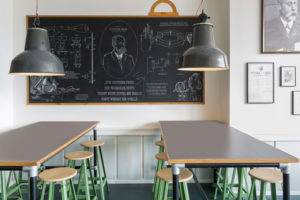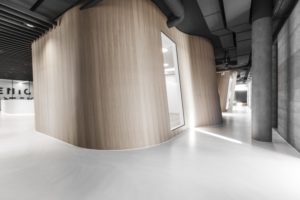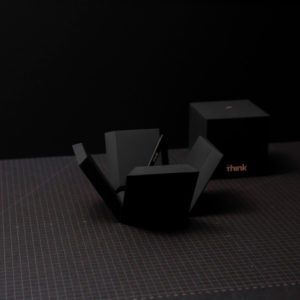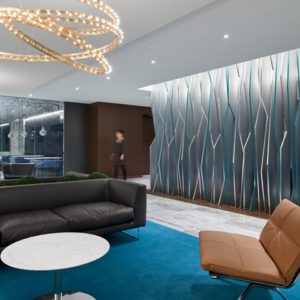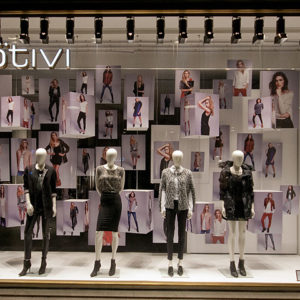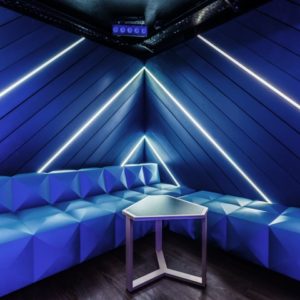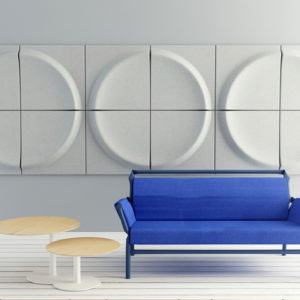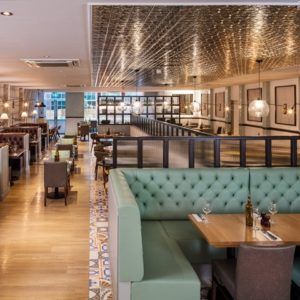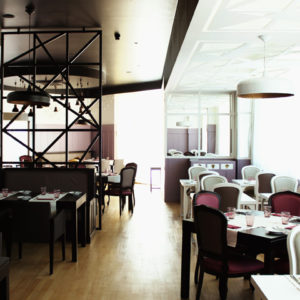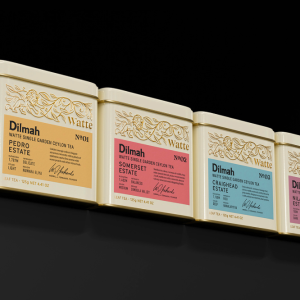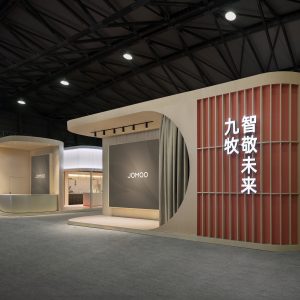
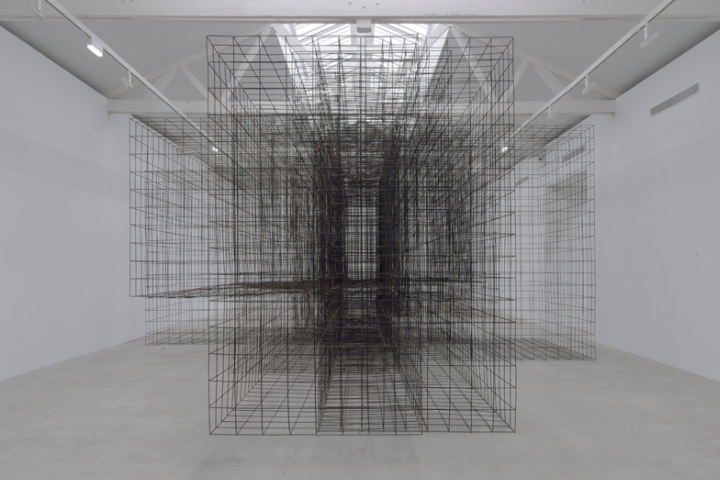

British sculptor Antony Gormley has filled a Parisian gallery with an impenetrable structure made from grids of steel, and an army of figures made from stacked metal cubes. The exhibition, named Second Body, occupies the four vast halls of Thaddaeus Ropac’s gallery in Pantin, on the outskirts of Paris.
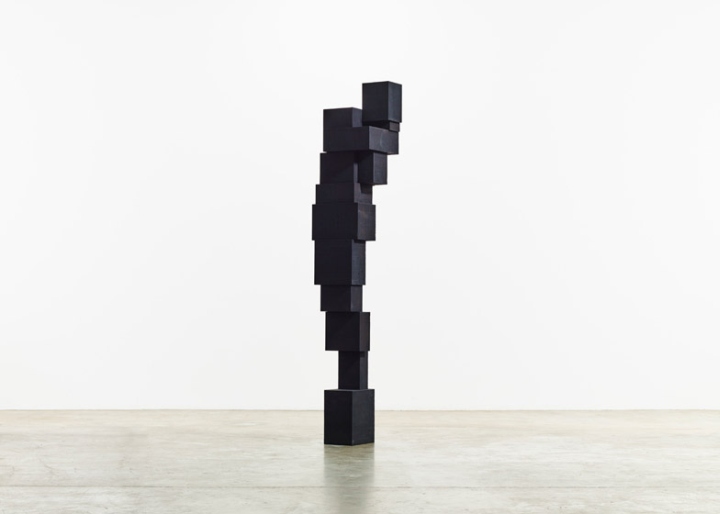
Gormley is known for creating sculptures based on the human form, including his monumental Angel of the North figure in Gateshead, England, and a series called Event Horizon that featured life-size and anatomically correct casts of his body perched on the rooftops of prominent buildings around the world. The works in Second Body follow a similar theme, exploring the relationship of the human figure to the spaces around it. “I have attempted to use the space of the gallery as a foil against which the themes of body and architecture are played out in four distinct ‘field’ experiences,” said Gormley. “The exhibition becomes a test site for the auto-observation of the viewer’s own sense of mass, scale and movement in time and space,” he added.
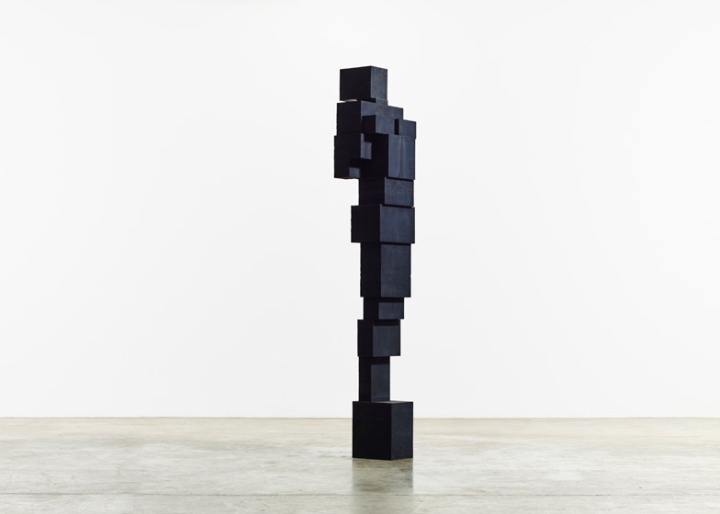
The first space in the gallery is occupied by a four-metre-tall sculpture made up of rectangular blocks shaped like a crouching figure. Called Hole, the sculpture is constructed from hollow chambers of eight-millimetre-thick steel. “The side of the work first facing you as you enter invites you to look within the square void in its back and appreciate the light running through it; a corridor to the heart of the work,” said Gormley, who added a similar crouched figure containing a guest suite to the facade of a London hotel. Fourteen solid lead blocks, collectively named Stop, sit at the other end of the same space, contrasting in size and weight to Hole. In the second room, viewers can walk among 60 abstracted humanoid sculptures arranged in four rows, each based on a different pose. Unlike many of Gormley’s early figures, which were created using moulds taken from his own body, these forms were constructed from interconnected steel boxes to create orthogonal shapes.
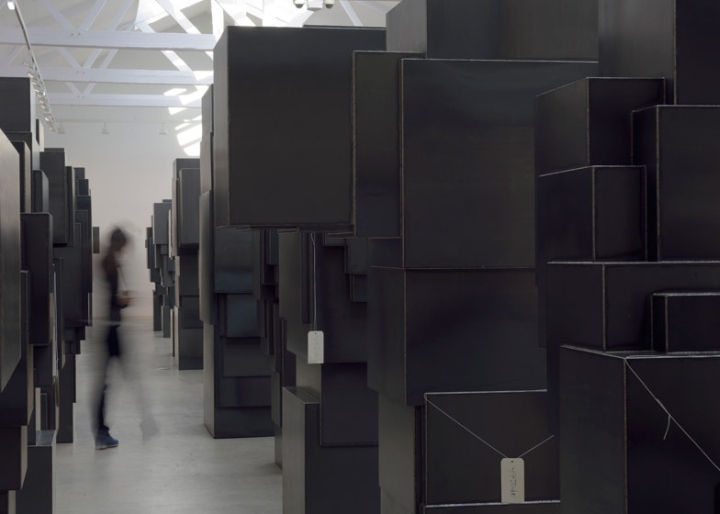
Called Expansion Field, this installation was originally shown in the Renzo Piano-designed Zentrum Paul Klee gallery in Bern last year, before it was packed more tightly into this smaller Parisian space. The third gallery space is sparsely populated by taller narrower versions of the figures in Expansion Field, which Gormley described as “dark, unstable columns”. Each sculpture is made from black oxide iron blockwork and weighs over two tonnes. Another of these figures – compared by the gallery to ancient stelae, a type of upright stone slab primarily used as a grave marker – is positioned on the grass outside the gallery.
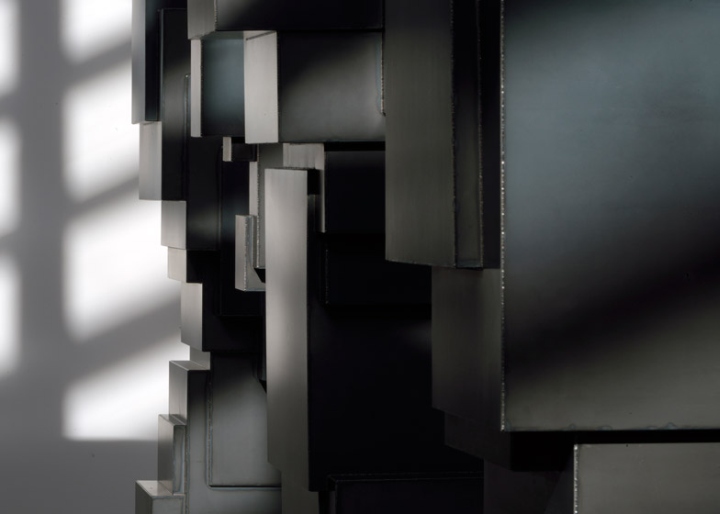
The last hall is occupied by the single largest work in the exhibition, Matrix II. The structure consists of 16 room-scaled volumes made in reinforced steel mesh, all slotted inside each other. At the centre of the installation is an unreachable void that appears large enough for two human bodies.”This materialised grid system gives a great sense of disorientation,” Gormley said. “As you are drawn by these push-pull perspectives and as you walk around the piece, the impossibility of reconciling foreground, mid-ground and background and the absence of any figure within this ground undermine any certainty of the stability of architecture itself.”
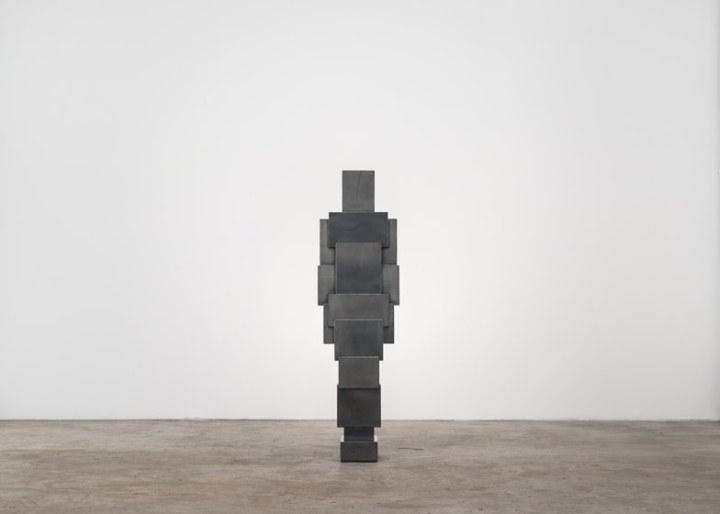
Gormley works primarily in the UK, and has a workshop in London’s Kings Cross. Local firm Carmody Groarke added a galvanised steel workshop to his studio in 2012.
Photography: Charles Duprat
Images courtesy of Thaddaeus Ropac’s gallerie“>Thaddaeus Ropac Galerie
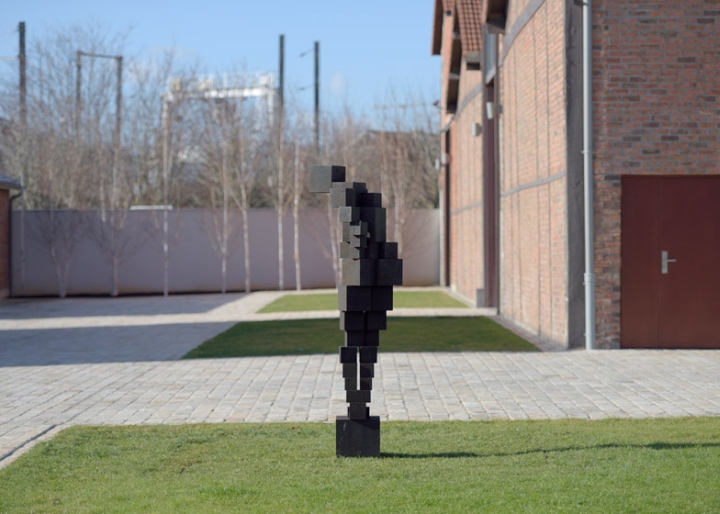
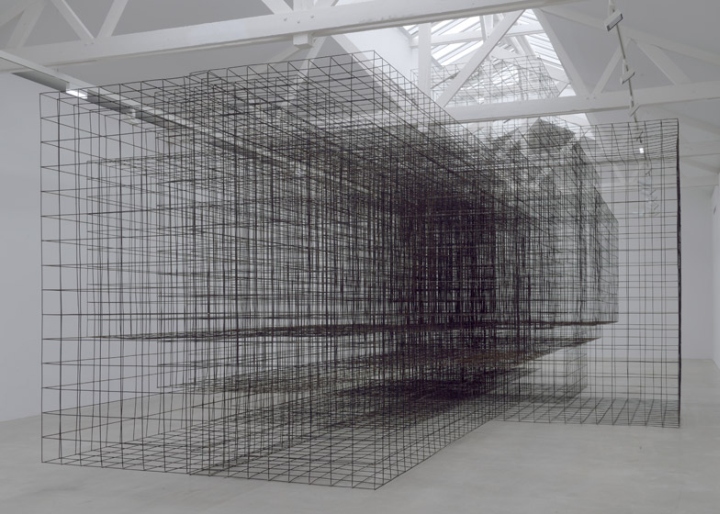
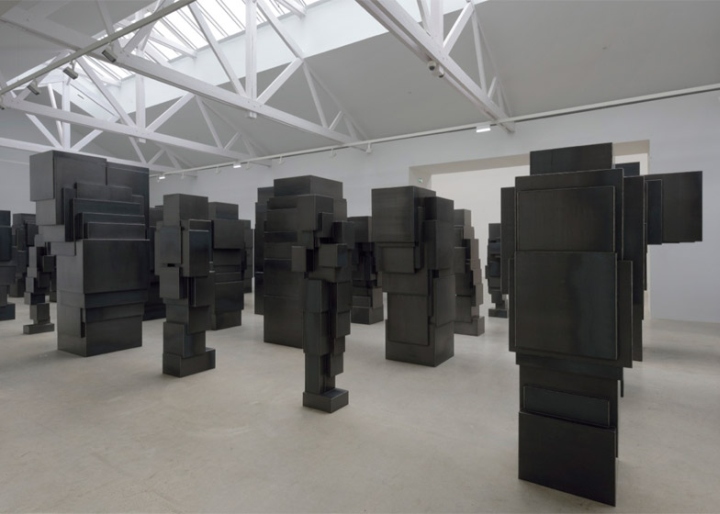
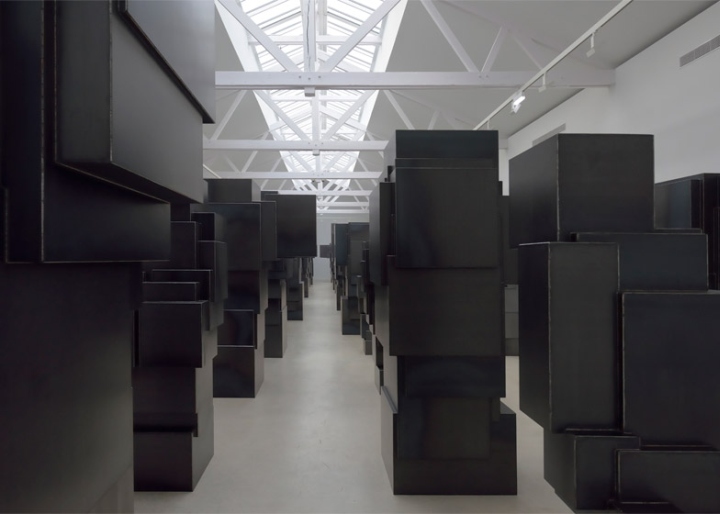

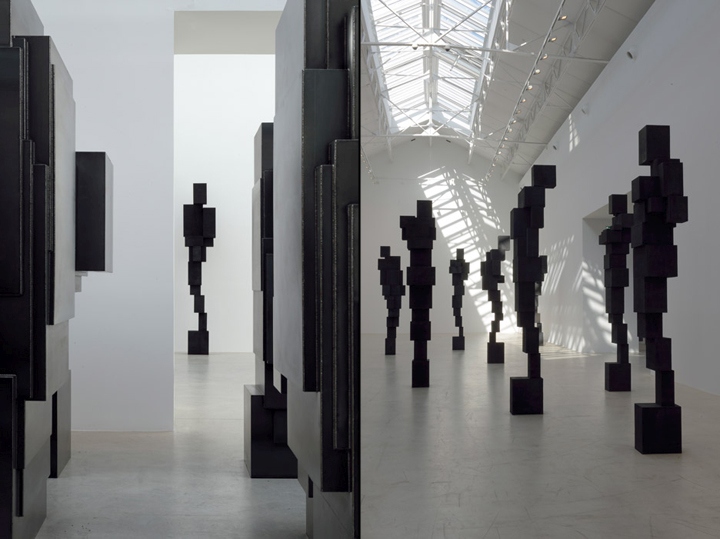
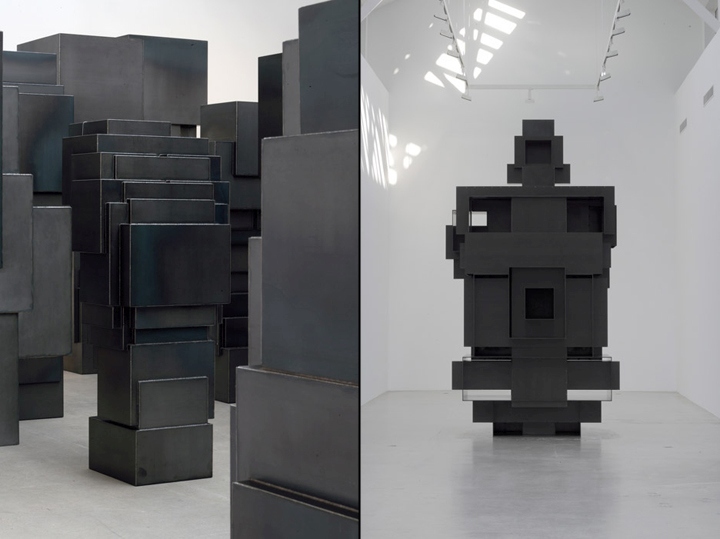
via Dezeen











